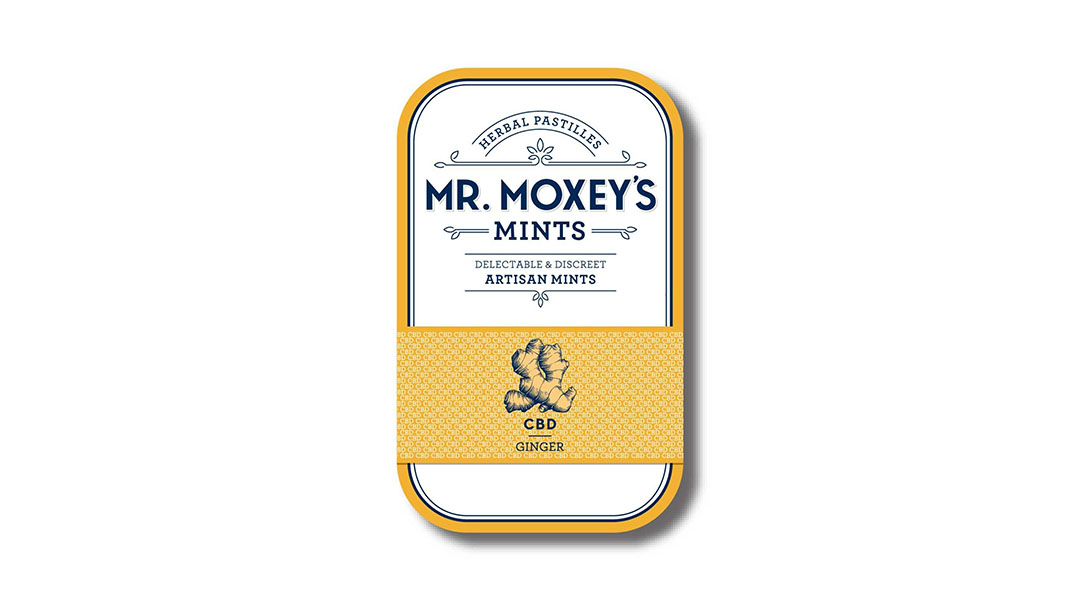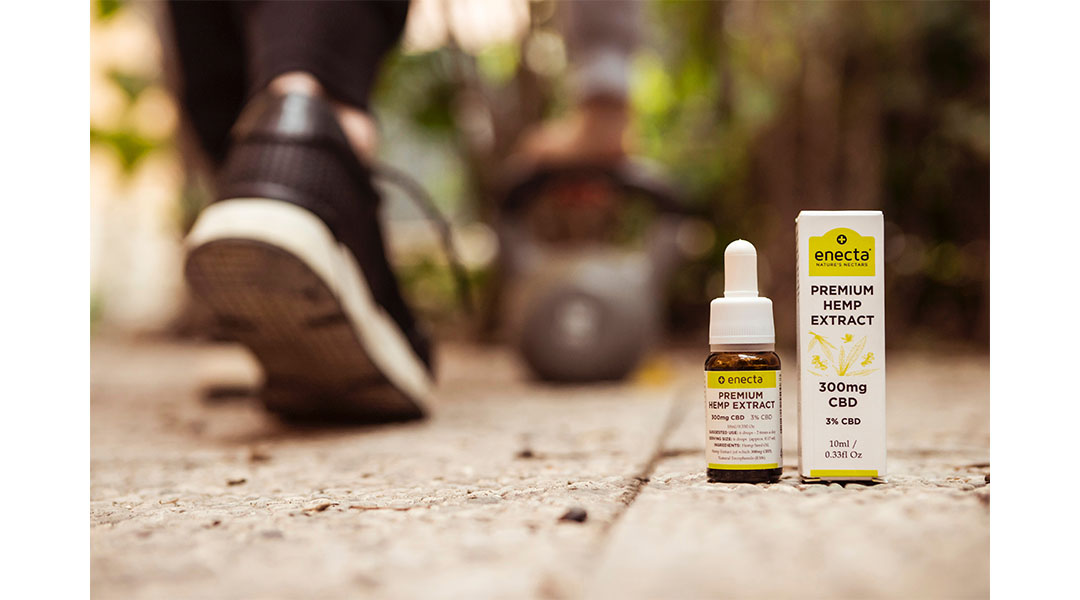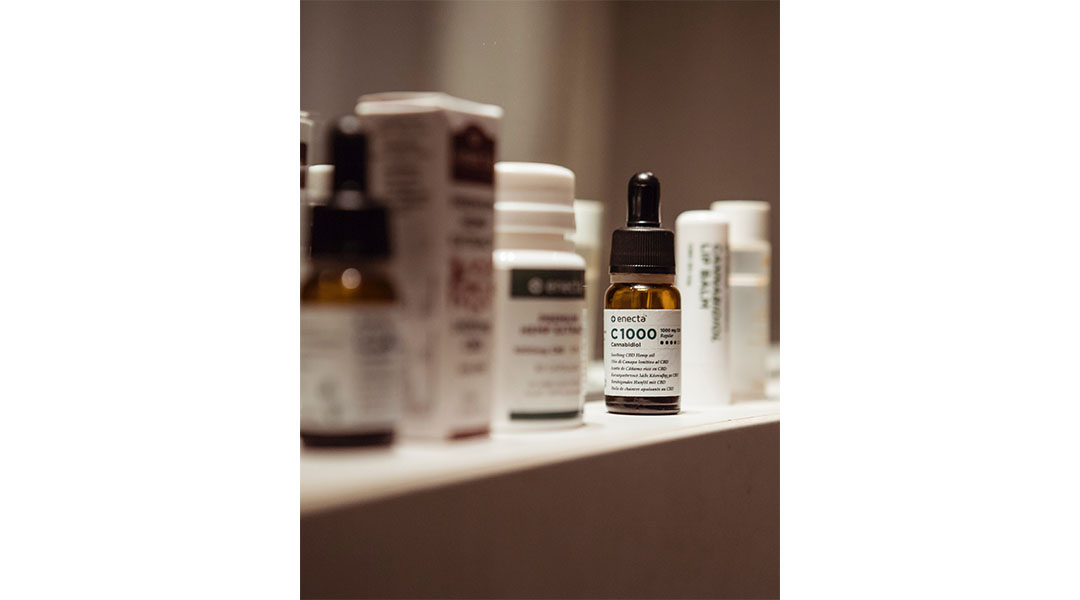This naturally occurring compound derived from cannabis is shaking off its stoner-stigma and experiencing a surge in popularity for its potential health-promoting benefits.
What is CBD?
Cannabidiol, or CBD, is one of the 104 phytocompounds derived from the leaves and flowers of two varieties of the cannabis sativa plant; hemp and marijuana. These cannabinoids act on receptors in your brain though unlike other marijuana products, CBD isn’t associated with getting high like its psychoactive cousin THC (Tetrahydrocannabinol). This makes CBD an appealing option as a natural remedy for many common ailments with even the World Health Organization saying that it can help manage Alzheimer’s, as well as help in general pain, anxiety and depression. CBD oil is made by extracting the CBD from the cannabis plant which is then diluted in a carrier oil like coconut, sunflower or hemp seed oil. The oil can then be used in a number of different ways – from vape pens, capsules, oral sprays or drops and topical creams and has more recently been hitting the high street in food and drink products. Last year, a number of CBD products were launched in the UK including Green Monkey’s CBD carbonated beverage, Mr Moxey’s CBD infused mints and Green Times Brewing’s CBD craft beer.

What’s the evidence behind CBD oils?
CBD oil has experienced a recent resurgence with an ensuing whirlwind of health claims ranging from a wild disease cure-all to salving everyday complaints. In the UK alone, it is estimated that 300,000 people use CBD oil. But what actually is the evidence behind it? The strongest scientific research backing the use of CBD oil is for treating some of the cruellest childhood epilepsy syndromes that don’t respond to antiseizure medications, such as Dravet syndrome and Lennox-Gastaut syndrome. For other diseases and ailments, there hasn’t been enough research yet to fully support confidently recommending CBD oil – though there have been some exciting studies done on mice. It’s been suggested that CBD may help reduce cancer-related pain symptoms, and there’s been suggestions around possible benefits in Alzheimer’s disease, blood pressure management, anxiety, depression and pain relief – though more studies are needed on humans before any of these benefits can be peddled with any real conviction. Time and further scientific research will tell.
CBD oil does appear to be generally safe to use, with a report from the WHO stating that ‘In humans, CBD exhibits no effects indicative of any abuse or dependence potential…. To date, there is no evidence of public health related problems associated with the use of pure CBD.’ That’s not to say there aren’t any possible side effects. CBD oil consumers may experience tiredness, irritability and nausea. And like grapefruit juice, CBD oil can interact with certain medication so it’s always worth checking with your GP first.

The legal stuff
There’s a great deal of confusion around where CBD oil sits in UK law. While the vast majority of cannabinoids are listed as controlled substances under the Misuse of Drug Acts, CBD is an exception and is completely legal in the UK ‘provided it has been derived from an industrial hemp strain that is EU-approved’. For CBD oil to be legal in the UK, it must contain no more than 0.2% THC. The exemption to this rule is Sativex, a 50-50 mix of lab produced THC and CBD that’s been approved for use in the UK for multiple sclerosis. While CBD oil is readily available online, in health food shops and local markets there’s been some consternation around the varying quality and purity. A significant safety concern with CBD is that it is primarily marketed and sold as a supplement, not a medication. Supplements aren’t regulated, and are considered innocent until proven guilty. Medicinal drugs on the other hand are considered unsafe until proven to be safe before being allowed on the market. Because of this, some CBD oils could potentially contain illegal doses - and with no guarantee of quality could be dangerous especially for children, the elderly and the unwell. You just can’t know for sure that the CBD oil you buy has active ingredients at the dose stipulated on the label, or in fact if it doesn’t contain any other unknown ingredients.

Final thoughts
While we still need more research done on humans rather than mice, ultimately, CBD oil seems destined to play an important role in helping alleviate some of the symptoms of a growing number of medical issues. However - it can be difficult for consumers to be confident that they are receiving a high quality products when CBD oil is classified as an unregulated food supplement rather than as a medication. Ultimately it’s up to you, but buyer’s beware.







